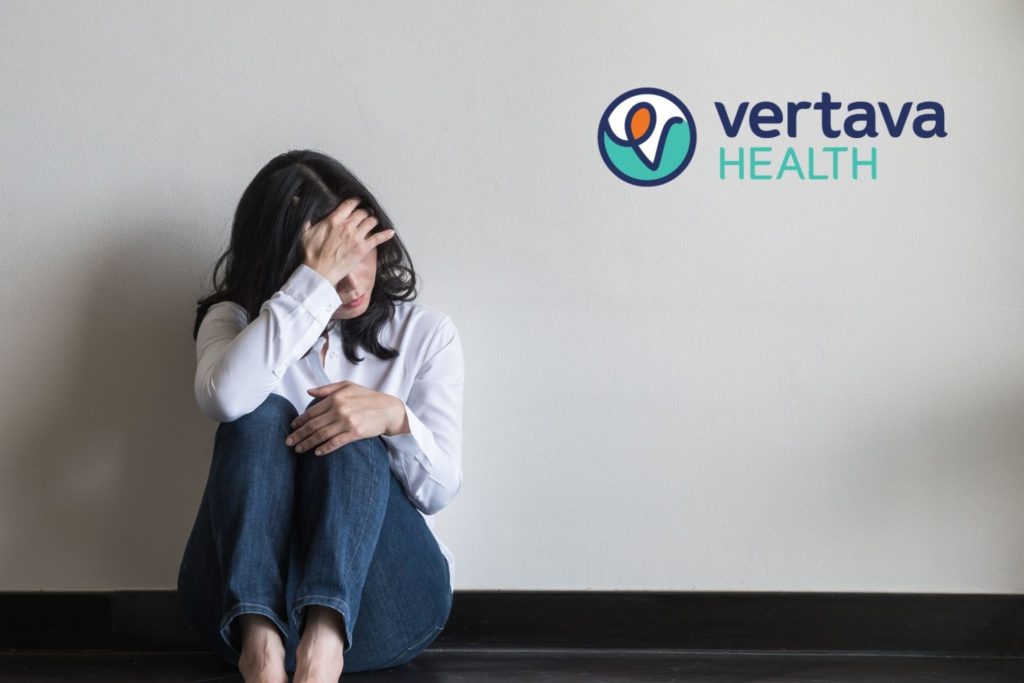In 2020, the world faced an unprecedented pandemic. Even though the COVID-19 vaccine could help bring an end to the spread of the deadly virus, the coronavirus crisis could still have a lasting impact. Many are becoming concerned with the effects of coronavirus on mental health including the growing connection between the coronavirus and depression as well as many people’s struggles to combat COVID-19 depression.
The Relationship Between Coronavirus & Depression
Approximately 264 million people in the world struggle with depression. In more recent years in the United States, this translated to about 17.3 million adults or 6.7% of Americans experiencing at least one major depressive episode within the last year.1 Unfortunately, 2020 was anything but normal. Because of the devastating impact of the pandemic, the number of people with depression during the COVID-19 pandemic appears to have dramatically increased. A survey from June 2020 found that 31% of adults in the United States said they were struggling with symptoms of anxiety or depression. Even more alarmingly, 11% admitted to seriously considering suicide.2 While these numbers were taken during the height of lockdown restrictions, similar results were found throughout 2020. The weekly Household Pulse Survey found that based on the reported frequency of anxiety and depression symptoms, anywhere from 36.2 to 42.6% of adults surveyed were believed to be struggling with anxiety or depression from August 19 to December 21 of 2020.3 The number of prescription drug fills for anxiety and depression medications in the United States was also the highest it’s ever been throughout 2020.4 The growing relationship between depression and COIVD is likely due to several different reasons. Social isolation from friends and family, anxiety surrounding the virus, financial struggles from the economic downfall, grief from losing someone, and trauma from having fallen seriously ill or being in close proximity to someone who was have likely all played a factor in the ongoing rise of depression during the coronavirus pandemic. Although places may be starting to loosen restrictions and the vaccination is being distributed, expecting people’s mental health to bounce back right away is unrealistic. Combating depression from coronavirus will take time, but the best is yet to come.
The Best Ways to Combat Depression During COVID
If you are struggling to fight depression from coronavirus, you are not alone, but there may be something you can do. As providers of behavioral health care, we are sharing some tips on how to combat depression from COVID so that your mental health doesn’t need to continue to suffer.
Keep A Healthy Routine
When you are feeling depressed it is easy to want to stay in bed all day, but sitting idly by could make you feel worse. Instead, create a healthy routine for yourself including following a sleep schedule, getting regular exercise, and setting time aside to do activities you enjoy. When you have a set schedule it can help you stay busy and keep you from drowning in toxic and unhealthy thoughts that could make your depression symptoms worse.
Use Technology to Your Advantage
There are many pros and cons of technology. Instead of pointlessly scrolling through social media for hours at a time, use this technology to connect with loved ones that you may not be able to see in-person. Facetime, plan weekly chats, set up a virtual game night, or have an online movie night. If you think outside the box, you can come up with plenty of fun activities that can help you feel connected to others instead of alone.
Try A New Hobby
Because many activities may not be an option right now, it’s a perfect time to try a new hobby. This could be anything from knitting to joining an online class. A new hobby can keep you busy and be a good distraction. You might even find a new passion that adds meaning to your life.
Turn off The News
While it is important to stay informed, the never-ending stream of news surrounding the pandemic, politics, and civil unrest can become overwhelming and make depression worse. Set time aside to check in with a few trusted news sources for the latest updates rather than letting the news play on repeat.
Get Outdoors
Going out into nature has been proven to have several mental health benefits.5 Especially if you are dealing with seasonal affective disorder as well, it is even more important to get outside. Sledding, hiking, walking, bird watching, running, and even having a backyard bonfire are all activities that you do while social distancing.
Avoid Coping with Drugs & Alcohol
Some people will struggle with how to combat depression from COVID in a healthy way and will turn to drugs or alcohol to cope. While these substances may make you feel better temporarily, in the long run, they can matter symptoms worse and could potentially lead to addiction.
Ask for Help
If you are struggling to battle COVID-19 depression, get help. Open up to friends or family about your feelings or contact a mental health professional. There are plenty of depression treatment options that could help you minimize your symptoms and help you feel better. At Vertava Health, we understand that it is has been a challenging time for many people and we want to be there to help. Our online mental health treatment lets you work through your COVID-19 depression from the comfort of your own home. Reach out to us today to learn more.


